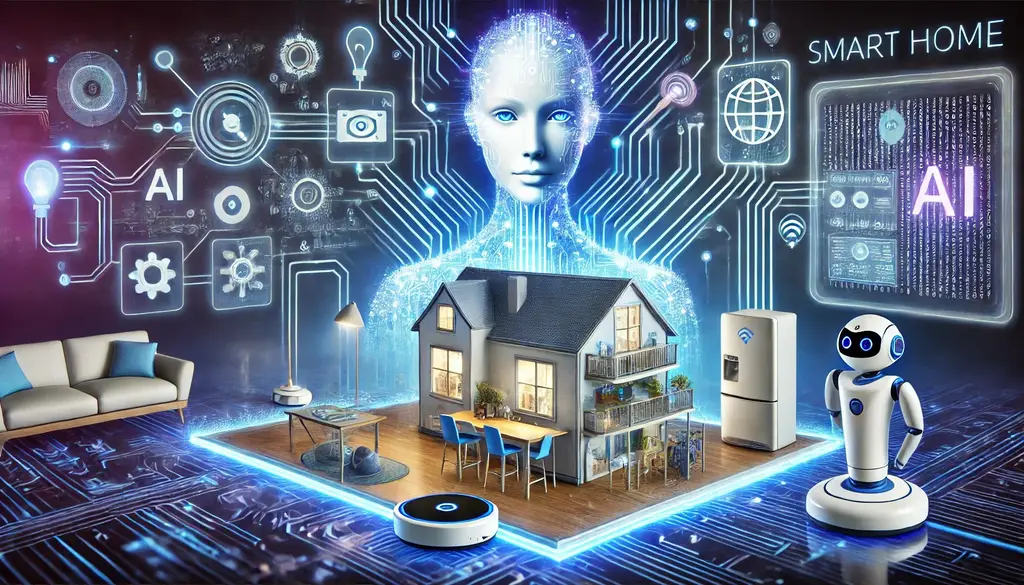“Hey everyone! We talk a lot about smart devices and automation, but what about Artificial Intelligence (AI)? Can AI actually make our smart homes even smarter? The answer is a resounding yes, and it’s happening in some exciting ways.
Let’s explore how AI is already being used in smart homes and what the future might hold:
1. Smarter Learning and Adaptation:
- Beyond Schedules: Traditional automations rely on pre-programmed schedules. A Local AI can take this to the next level by learning your habits and preferences, automatically adjusting things like temperature, lighting, and even music based on your past behavior and real-time context.
- Example: A smart thermostat that learns your preferred temperature settings at different times of day and adjusts automatically, even if your schedule changes. Or imagine a smart lighting system that learns your daily routines and adjusts lighting levels accordingly.
2. Enhanced Security:
- Intelligent Threat Detection: AI-powered security cameras can differentiate between people, pets, vehicles, and even packages, reducing false alarms and providing more relevant alerts. They can often recognize familiar faces vs. strangers.
- Proactive Security Measures: Some systems can detect unusual patterns or sounds (like breaking glass) and alert you to potential security breaches before they happen.
- Example: A security camera that sends you a notification only when a person is detected at your front door, ignoring the neighbor’s cat that frequently wanders through your yard.
3. More Natural Voice Control:
- Improved Understanding: AI is making voice assistants like Home Assistant Voice better at understanding natural language, accents, and context, making voice control more reliable and intuitive.
- Conversational Interactions: Instead of rigid commands, you can have more natural conversations with your voice assistant to control your smart home.
- Example: Instead of saying, “OK Nabu, turn on the living room lights,” you could say, “OK Nabu, I’m feeling a bit tired,” and your AI-powered system might dim the lights and play some relaxing music.
4. Predictive Maintenance:
- Appliance Monitoring: AI can analyze data from your smart appliances (like your refrigerator, washing machine, or air conditioner) to detect potential problems before they cause a breakdown.
- Alerts and Recommendations: You could receive alerts about unusual energy consumption patterns or performance issues (like your cloths dryer is taking 20% longer to dry than it did last month), along with recommendations for maintenance or repairs.
- Example: Your smart washing machine might notify you that it’s detected a potential imbalance issue and suggest running a diagnostic cycle.
5. Personalized Comfort and Convenience:
- Facial Recognition: AI can be used in systems that recognize you and adjust settings based on your personal preferences.
- Gesture Control: Some systems are beginning to incorporate gesture control, allowing you to control devices with simple hand movements.
- Example: Imagine walking into your home and having the lights, temperature, and music automatically adjust to your preferred settings, just by recognizing your face as you walk in the door.
The Future of AI in Smart Homes:
As AI technology continues to evolve, we can expect even more sophisticated and personalized smart home experiences. Imagine:
- AI-powered smart home managers: A central AI that coordinates all your smart devices, anticipates your needs, and proactively manages your home environment, all within your own walls.
- Hyper-personalization: Smart homes that adapt in real-time to your every mood, activity, and preference.
What are your thoughts on AI in smart homes?
- Are you excited about the possibilities?
- Do you have any concerns about privacy or security?
- What AI-powered smart home features would you find most useful in your own home?

